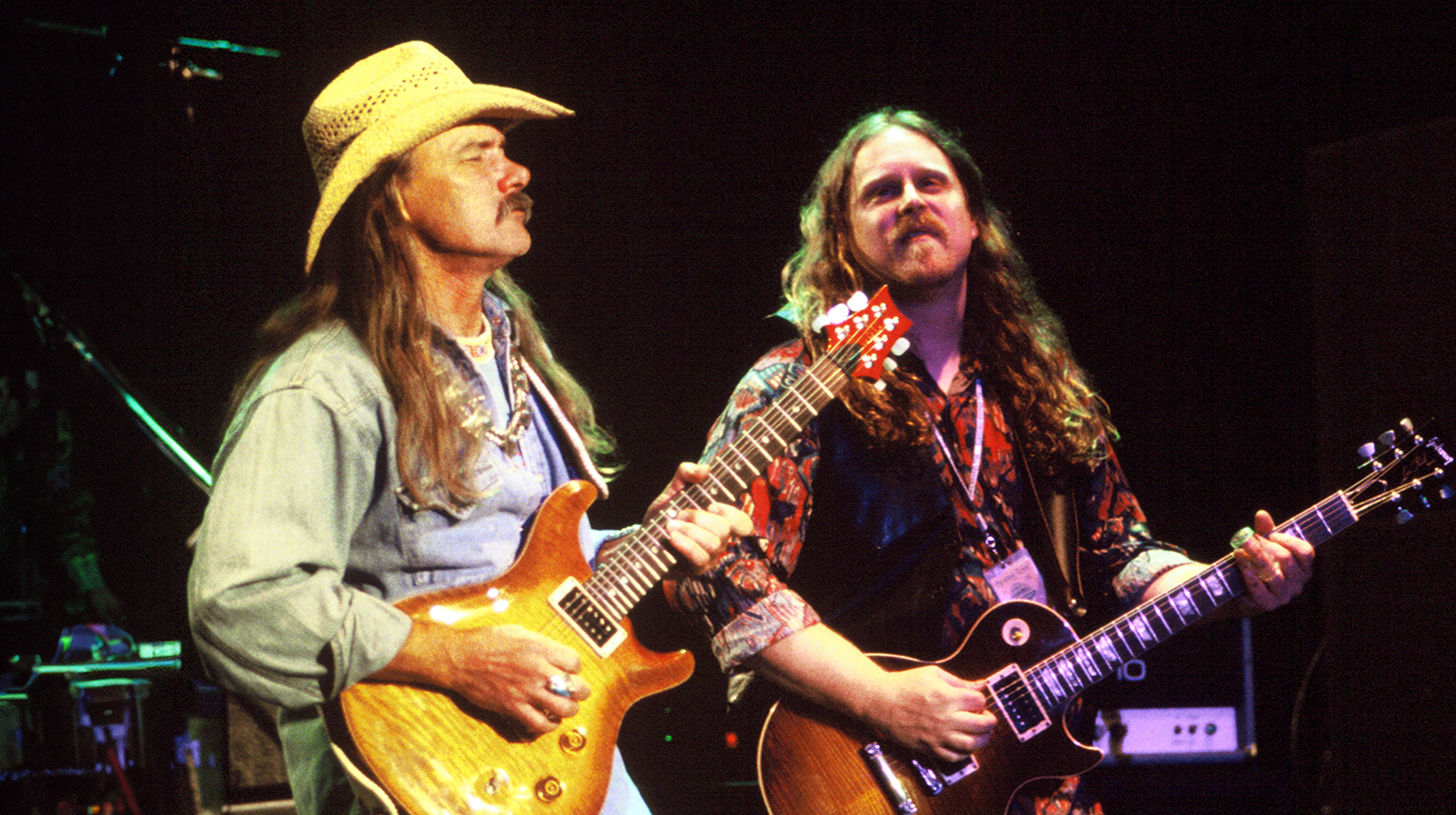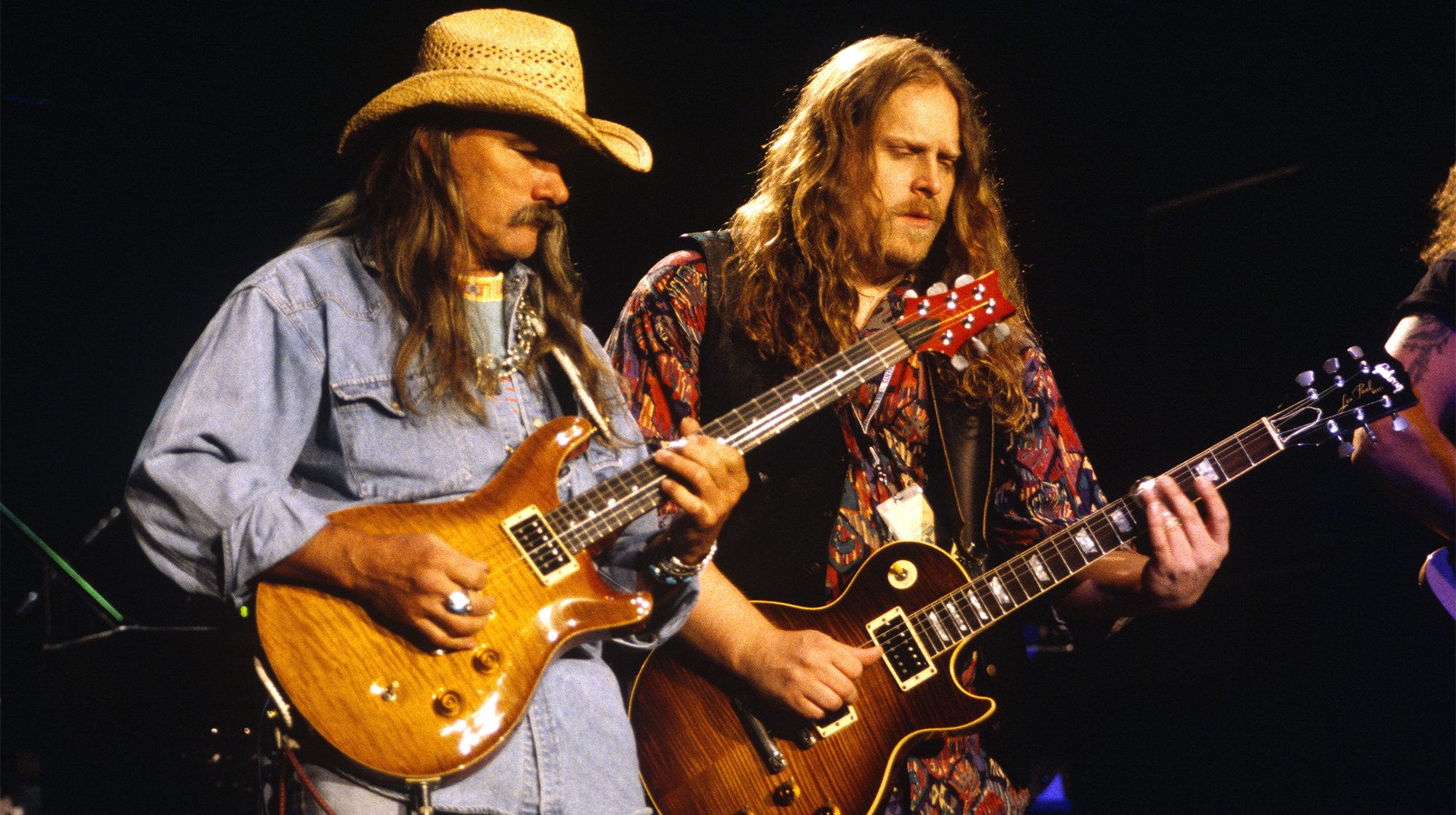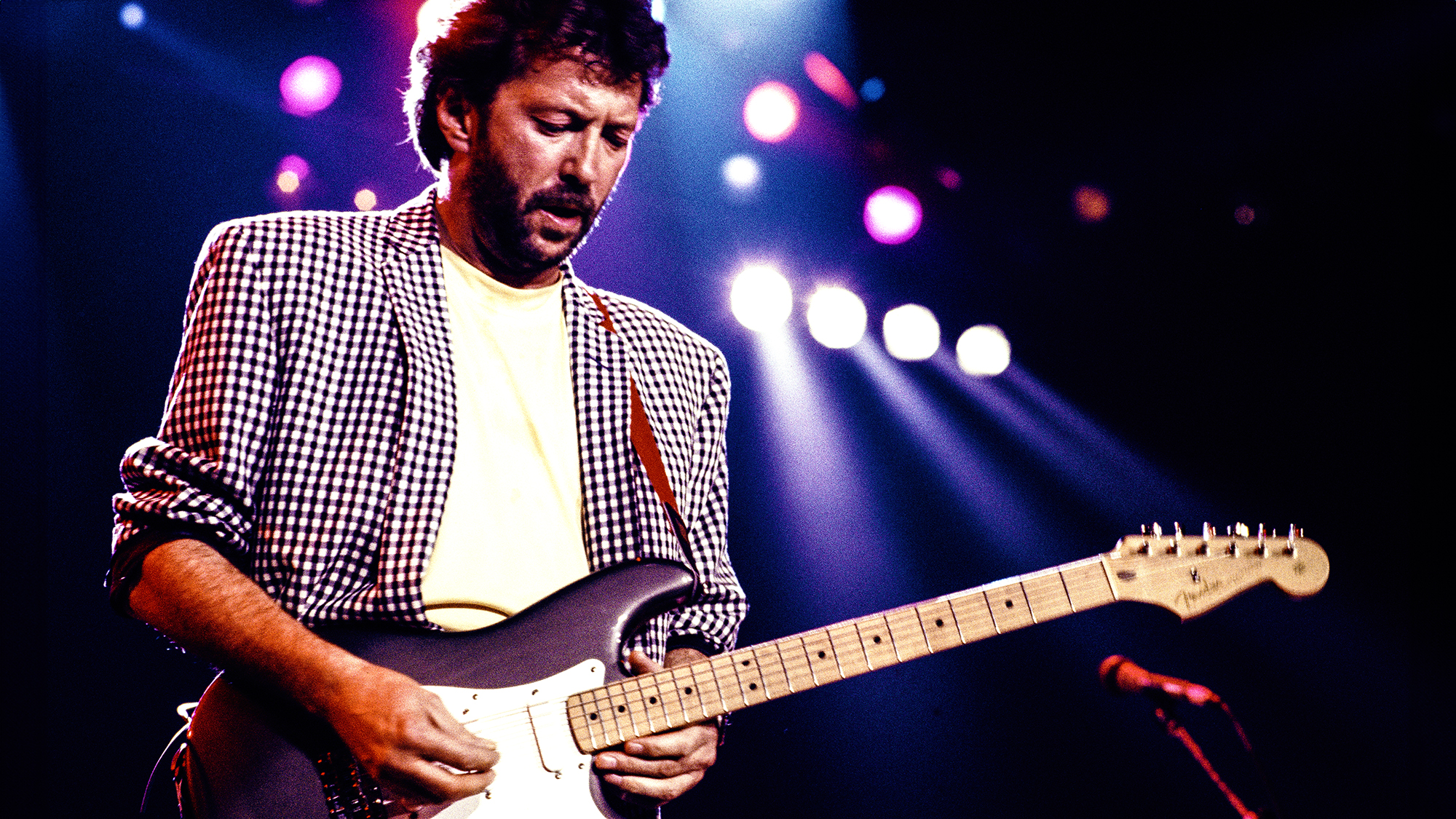“I had this reverence for Duane Allman’s playing — but I wanted to make it my own as well.” Warren Haynes on the advice Dickey Betts and Gregg Allman gave him when he joined the Allman Brothers Band
The guitarist honors the ABB with a cut on 'The Whisper Sessions,' his forthcoming album featuring stripped-down versions of tracks from 2024’s 'A Million Voices Whisper'

Warren Haynes never imagined he would fill the shoes of his childhood hero Duane Allman by playing opposite Dickey Betts in the Allman Brothers band.
Even after he was hired by Betts to play opposite him in his Dickey Betts Band, Haynes had no assumptions about making the sizable leap to the ABB.
“Well, it was intimidating because the Allman Brothers Band was always one of my favorite bands, and I had no expectations of that happening,” the guitarist tells Music Radar in a new interview.
But when it finally happened, he couldn’t have been better prepared.
“I had been playing with Dickey and his band for two or three years, and that really helped condition me for being in the Allman Brothers,” Haynes says. “By the time I joined the Allman Brothers, Dickey and I had been playing for three years, and writing songs together for three years, so we had that initiation period, so to speak, which made it a little easier.”
I had three years of standing next to Dickey Betts, in smaller venues.”
— Warren Haynes
Haynes was about 27 when Betts called him to help perform backup vocals on his first solo project following the initial breakup of the Allman Brothers Band in 1987. That led to Haynes being hired as Betts’ guitarist for more session work that resulted in the band’s 1988 debut album, Pattern Disruptive. Haynes’ next project was co-writng the title track for Gregg Allman’s solo album Just Before the Bullets Fly.
So when the Allmans decided to regroup in 1989, Haynes had a leg up on the competition. Besides, he already knew how to play opposite Betts, with a fire equal to the older man’s, but in a style that was complementary to it.
All the latest guitar news, interviews, lessons, reviews, deals and more, direct to your inbox!

“I had three years of standing next to Dickey Betts, in smaller venues,” he says.
What he didn’t expect was that he would be given the room to bring that style to the Allman Brothers Band. Far from wanting a Duane Allman clone to help them relive their glory days or copy the classic Allman–Betts guitar duels, the ABB needed a guitarist who would take them to the next stage in their development.
“They were great about allowing and encouraging everyone to bring their own personality to the music,” Haynes says. “From the very beginning, they never asked me to play more like Duane Allman, or less like Duane Allman. It was always, ‘Be yourself. Play like you.
“Play it however you want to do it,’ knowing that I had this reverence for Duane’s playing, and for the music in general, and that I wasn’t going to go too far away from the feeling and the spirit of the music. But I wanted to make it my own as well.”
They were great about allowing and encouraging everyone to bring their own personality to the music.”
— Warren Haynes
Even on the old tunes, Haynes was given room to work his reinvention. Consider “Blue Sky,” the Dickey Betts cut from 1972’s Eat a Peach, one of the last cuts to feature Duane Allman. Unlike Allman, he approached his solo on the song with a slide and a Strat —— as in the performance shown below from the band's 1991 tour — something he says “was strange, because Duane," a devoted Les Paul player, "never played slide on it.
“But that was something that Dickey probably asked me to do for his band — or maybe it was my idea, I don’t know.”
Betts departed the ABB in 2000 as tensions rose to the breaking point, opening the door for Derek Trucks to take on his position after having filled in for Betts in 1999. The Allman Brothers Band hung it up for good in 2014 when Haynes and Trucks announced they were leaving to focus on their own projects.
Today, the Allman Brothers Band is never too far from Haynes heart. His new album, The Whisper Sessions — a stripped-back version of his 2024 studio album, A Million Voices Whisper — finds him paired up again with Trucks for a cover of the ABB hit “Melissa.” The duo also present a reworked version of “Real Real Love,” the unfinished Gregg Allman tune that Haynes brought to its completion for A Million Voices Whisper.
Trucks also appeared on that previous recording of “Real Real Love,” marking the first time the two guitarists made a studio album since the 2003 Allman Brothers Band album, Hittin’ the Note. Haynes told Guitar Player that upon finishing the song, he knew immediately he wanted Trucks on the track. “It just made sense.”
The Whisper Sessions comes out September 12 on Fantasy and can be saved to your preferred streaming service ahead of time.
In related news, Haynes will front his group Gov’t Mule on their 30th anniversary co-headlining tour with the Tedeschi Trucks Band. Visit Warren Haynes for dates and tickets.
Christopher Scapelliti is editor-in-chief of GuitarPlayer.com and the former editor of Guitar Player, the world’s longest-running guitar magazine, founded in 1967. In his extensive career, he has authored in-depth interviews with such guitarists as Pete Townshend, Slash, Billy Corgan, Jack White, Elvis Costello and Todd Rundgren, and audio professionals including Beatles engineers Geoff Emerick and Ken Scott. He is the co-author of Guitar Aficionado: The Collections: The Most Famous, Rare, and Valuable Guitars in the World, a founding editor of Guitar Aficionado magazine, and a former editor with Guitar World, Guitar for the Practicing Musician and Maximum Guitar. Apart from guitars, he maintains a collection of more than 30 vintage analog synthesizers.


